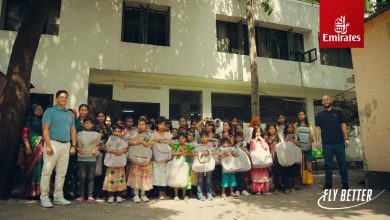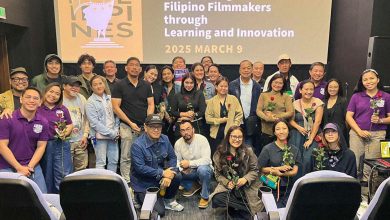MANILA, PHILIPPINES – As the COVID-19 pandemic infects millions around the world, the World Health Organization’s (WHO) digital business solutions manager Andrew Pattinson called out the only one other thing that is spreading faster than the virus itself: an infodemic of false information.
Thomson Reuters Manila and One Young World recently co-presented a virtual session on “Trusted Content, Fake News, and the Law in the time of COVID-19,” discussing the pressing need for accurate information over fake news, even while respecting basic freedoms of speech, expression, and the press.
Thomson Reuters Foundation CEO Antonio Zappulla; Reuters Philippines Bureau Deputy Chief Karen Lema, and Former Dean of Ateneo School of Government Tony La Viña shared their insights on news dissemination and recommendations on overcoming fake news.
Determine the source of information. Especially in times of widespread uncertainty, social media makes it all too easy for people to eagerly share information with their networks of family, friends, and colleagues. However, wrong information can prey on people’s fears and even push them to act in an extreme manner resulting in unwanted, and sometimes tragic outcomes.
Before hitting that share, retweet, or forward button, make sure that the information you share is from a trusted source. Ask yourself the following: Who is quoted in the piece of information you are sharing? Is the person an expert in the field or in a position of authority?
Experts and authorities are easily accessible these days through their own social media accounts, so it is easier to verify if the source can be trusted.
In the case of user-generated content, Lema noted that it is easy to lose the original source on social media. Before sharing such content, the same principle of verifying sources applies. Lema warned against the Filipino practice of simply affixing CTTO (credit to the owner) instead of citing the owner in the shared content. It is best to find out who the owner is and if he/she stands by the integrity of the content uploaded.
There are various platforms online that provide timely, truthful, accurate, and verified information. Zappula shares, “We have created a dedicated section on our news site focused on the impact COVID-19 is having on people, society and human rights, in particular on those around the world who struggle to live freely and in equitable circumstances. Coverage explores topics ranging from ways the virus is hitting workers in some of the world’s lowest-paid sectors and those employed in the informal economy, to how governments are ramping up surveillance on people, and how social enterprises are mobilising efforts to help stem the spread of the pandemic. We are also reporting on how groups living on the edge of society are being affected, from the LGBT+ homeless community, to victims of domestic violence, to survivors of trafficking and slavery.”
Make sure the news source upholds journalistic standards. News organizations abide by a code of ethics and standards to ensure that anything they report is true, accurate, impartial, fair, and of interest to the general public. La Viña noted that these organizations have built their names and gained public trust over time, in contrast to spurious sources of information and content.
In the case of Reuters, Lema said that they have a group of producers worldwide tasked to source, verify, and clear user-generated content. In reaching out to sources, this group also gets background information, context, and quotes, she added.
Understand that the situation is evolving. Verify information through multiple sources. As the situation remains dynamic, guidance on what actions to take may also change through time. As an example, La Viña cited WHO’s initial recommendation to limit the use of face masks to health workers, but that has since been updated to face masks for everyone, with asymptomatic individuals now conditionally recommended to wear face masks to reduce transmission in the community. This information may be verified by making sure it has been published in multiple trusted sources of information, primarily from the WHO.
La Viña also pointed out that scientific uncertainty and debate must continue to be allowed to come up with solutions to the challenges brought about by pandemic. In terms of accountability, however, he emphasized the need for social media companies to immediately take out fake news and hateful views on their platforms to prevent these from thriving.
When it comes to verifying information through multiple sources, it helps to reach out to the experts. Zappula shares that in launching the COVID-19 Crisis Reporting Hub for Journalists in the Global South, Thomson Reuters is equipping journalists with the core skills and information they need to cover the pandemic, connecting them with key experts and other reporters covering the crisis in countries most affected by the pandemic. He explains, “We are uniquely placed to lead this effort – we have extensive expertise in delivering global media development interventions and have an established network of media professionals, policy experts and journalist alumni. Our support network will focus on facilitating access to trusted information and professional capacity building by offering virtual classes on core journalism skills, training and mentoring, live briefings with key health experts and journalists at the frontline of the crisis and live collaborative working sessions.”
Understand the law. Smartphones have turned everyone into citizen reporters. No matter the platform or channel, individuals should think as critically as journalists if they want to participate in the process of collecting and distributing information. La Viña stated that it’s important to know that the dissemination of fake news is punishable in the Philippines under the Cyber Crime Law, and Article 154 of the Revised Penal Code. Take the responsibility of analyzing content before clicking “share.” There are convenient online tools for verifying imagery, and sites similar to Reuters Fact Check to track viral claims to combat misinformation.
The adage is true: don’t feed the trolls. The antidote to fake news and hateful views are truthful news and well-informed perspectives. La Viña pointed out that criminalizing the dissemination of fake news will not be totally effective. He noted that there is an entire “political economy,” or well-funded politics-driven machinery around fake news.
Instead, he advised users of social media and online sources of information to report such posts and block those who post such content. Those who spread fake news may not be immediately stopped, but anyone who shares information should be responsible for passing on only what is accurate and factual.
Lema echoed La Viña, citing a quote from Reuters Editor-in-Chief Stephen J. Adler who had said, “When people are properly informed, fake news doesn’t stand a chance.”










